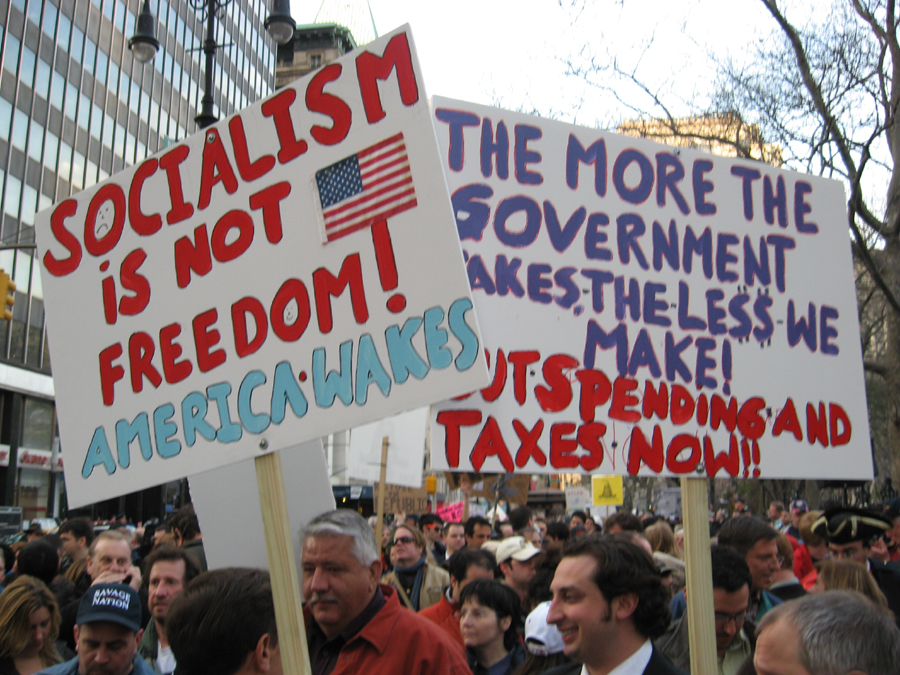The Road to Treadmill Serfdom

It's a little hard to tell this story from Chicago without a lot of sarcasm, but I'll try my best.
Like a lot of American cities, Chicago faces severe budget problems. One obvious place to look for savings: the health benefits of city employees. Health care for city workers costs Chicago $500 million a year and are rising at 10% per year.
Newly elected mayor Rahm Emanuel hopes to reduce those costs by encouraging city employees to take better care of their health. He has called upon city employees to enroll in a new wellness plan.Those who do not enroll will pay an extra $50 per month in healthcare premiums.
This experiment may or may not yield results. But whatever else it is, it hardly sounds like the thunk of the fascist jackboot on the pavement - or so you'd think.
Now scroll through the comments on the NBC Chicago website about the wellness plan.
* The fools of Chicago deserve this loss of thier freedom to "choose". Next it will be the food they must buy, then the past time activities, and so on. It's 1938 in Chicago.
* As the former Commisar-in-chief for the Tsar Obama, is anyone surprised about the tactics? I'm not.
* Mixing a little Huxley with Orwell are we?
* As a immigrant (legal) from the Soviet Bloc and a 20th-cent. history buff, I can say with confidence this reeks of Stalinism
* These communist totalitarians just can't resist trying to control every aspect of our lives.
* Chicago is a testing ground for Obama's future plans. This will spread to the state government, then to the federal government, eventually it will be forced on all Americans.
There are literally hundreds more like these, and I think they reveal something interesting.
James Madison may not have bequeathed Americans the right to engage in unhealthy behavior at other people's expense. But clearly more than a few Americans cherish that right - just as they cherish the right to drive through red lights - and just as they cherished the right to receive Medicare without any interference from the government that provides the Medicare.
Laugh if you want - but also pay attention.
What you are hearing here is the secret of the Tea Party. Americans do not clearly distinguish in their minds between "rights" in the James Madison sense and what we might call "folkways." The ability to live in a large suburban house, drive to work on a highway without tolls, buy a sausage and egg biscuit for a dollar, eat in the car, park for free at the office, and send the bill for any negative consequence to a solvent Medicare program - there are many people to whom that pattern of life means more than trial by jury or even freedom of the press. Like all of us, such people want to keep what they have - and bitterly resent anyone or anything that forces change.
It's important to understand:
- This resistance does not readily fit the pre-existing ideological map of the political parties. Most Republicans probably instinctively sympathize with the idea that public employees ought to be asked to contribute more to their generous health plans. Yet here are public employees using Republican-style language of individual freedom to defeat a claw-back.
Likewise, the Tea Party began as a protest movement against President Obama's attempt to squeeze money out of (heavily white) Medicare to fund more healthcare subsidies for the (heavily minority) uninsured. Republicans seized upon that energy as a public demand for the Paul Ryan plan to squeeze much more money out of Medicare, beginning as soon as 10 years from now, when most Medicare beneficiaries will still be white. Republicans have been taken aback at how unpopular that idea is. They shouldn't have been.
- The fact that resistance is heartfelt does does not make it just or wise. When the Boston selectmen of the 1630s began banning thatched roofs from their city, they met resistance. The city fathers of New York met resistance when they started building sanitary sewers in the 1840s. Those who demand that the public treasury absorb the costs of their own personal doughnut-and-McMuffin diet will surely look just as ridiculous to later generations as the libertarians who claimed the right to build firetrap housing in Boston or to dump their ordure in the creeks of New York.
- On the other hand, neither does the fact that stakeholder resistance to change mean that it can be willfully overborne. People have to be persuaded out of old habits. And over time, arguments that are genuinely for the public good will gain headway. The question for leaders pushing change - whether it's Mayor Emanuel asking Chicago public employees to live healthier or Paul Ryan rescinding the Medicare guarantee for Americans under 55 - is whether these changes really do seek the good of all ... or whether they impose sacrifices on the many to enrich the powerful few.

